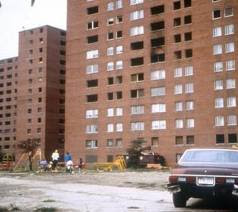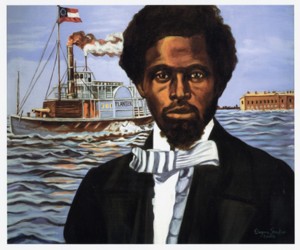 Some kids don’t get a childhood. Instead, they just grow up. The happy memories of playing outside with friends are replaced with memories of fear, gunshots, dirty needles, and murder. Once you have seen that, you can never be a kid again.
Some kids don’t get a childhood. Instead, they just grow up. The happy memories of playing outside with friends are replaced with memories of fear, gunshots, dirty needles, and murder. Once you have seen that, you can never be a kid again.
Alex Kotlowitz, an American author and journalist, wrote a book entitled There Are No Children Here in which he chronicles the lives of two black boys growing up in the infamous Henry Horner Homes housing projects in Chicago. These boys experience things that no child should. In the preface of the book, Kotlowitz states that by the time children in Chicago’s inner city
book, Kotlowitz states that by the time children in Chicago’s inner city
Reach adolescence, they have contended with more terror than most of us confront in a life time. They have lived with fear and witnessed death. Some of them have lashed out. They have joined gangs, sold drugs and in some cases inflicted pain on others.
The ghetto is a rough place to grow up indeed. But, what makes a ghetto? Why does growing up there cause a youth to automatically forfeit his childhood? The Harvard sociologist William Julius Wilson would say generational poverty – plain and simple.
It all started with integration. Once upon a time black people lived in the same neighborhoods, but once well-to-do blacks could move to better areas, they left all the poor blacks in the  neighborhoods by themselves. This created pockets of very low income areas. In the 80’s crack came out of nowhere and violence skyrocketed. Not wanting to deal with that, businesses fled along with the rest of the tax base and community resources.
neighborhoods by themselves. This created pockets of very low income areas. In the 80’s crack came out of nowhere and violence skyrocketed. Not wanting to deal with that, businesses fled along with the rest of the tax base and community resources.
The consequences of these economic and social forces were female headed households, welfare dependency, and chronic joblessness. For a young black male this is a perfect storm. Nothing hurts a young man more than to see his mother struggle, so if the alternative to an empty refrigerator is pushing dope then so be it.
Unfortunately, these are the types of decisions young black men and boys are faced with in the inner city ghetto. Until we have walked a mile in their shoes, we should not judge. If there were more opportunities in their area, I am sure they would take advantage of them.
References
Kotlowitz, A. (1991). There are no children here: The story of two boys growing up in the other America. New York, NY: Anchor Books.
Wilson, W. J. (1987). The truly disadvantaged: The inner city, the underclass, and public policy. Chicago, IL: The University of Chicago Press





